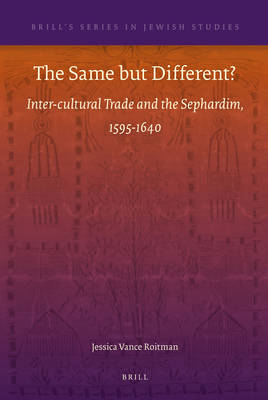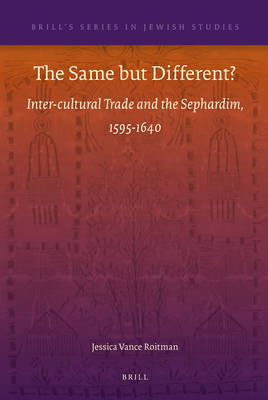
- Afhalen na 1 uur in een winkel met voorraad
- Gratis thuislevering in België vanaf € 30
- Ruim aanbod met 7 miljoen producten
- Afhalen na 1 uur in een winkel met voorraad
- Gratis thuislevering in België vanaf € 30
- Ruim aanbod met 7 miljoen producten
Zoeken
€ 145,44
+ 290 punten
Omschrijving
Using cutting-edge theory regarding trade networks and diaspora, this study challenges the historiographical argument that the Sephardim, and indeed, a variety of religio-ethnic groups, achieved their commercial success by relying on geographically dispersed family members and fellow ethnics. The book's findings challenge the reigning understanding that commercial success stemmed from endogamous business relationships and socio-cultural insularity. The book demonstrates that the most successful Sephardic merchants of early seventeenth century Amsterdam built their fortunes not thanks to familial or diasporic connections, but through "loose ties," economic networks comprised of non-Sephardim. Focusing on three of the most prominent Sephardic merchants in Amsterdam, and a random sampling of other Sephardi merchants, the book reveals a multi-ethnic and multi-religious trade network of non-Jewish merchants.
Specificaties
Betrokkenen
- Auteur(s):
- Uitgeverij:
Inhoud
- Aantal bladzijden:
- 340
- Taal:
- Engels
- Reeks:
- Reeksnummer:
- nr. 42
Eigenschappen
- Productcode (EAN):
- 9789004202764
- Verschijningsdatum:
- 14/02/2011
- Uitvoering:
- Hardcover
- Formaat:
- Genaaid
- Afmetingen:
- 168 mm x 244 mm
- Gewicht:
- 680 g

Alleen bij Standaard Boekhandel
+ 290 punten op je klantenkaart van Standaard Boekhandel
Beoordelingen
We publiceren alleen reviews die voldoen aan de voorwaarden voor reviews. Bekijk onze voorwaarden voor reviews.








